A story of many millennia
In broad terms, agriculture represents the cultivation of land, animals, and plants for food, fuel, and other purposes. It has been vital in human history, providing sustenance and resources for societies for thousands of years. However, past and current methods of carrying out agricultural practices have led to environmental degradation, including soil erosion, water pollution, and deforestation.
Sustainable agriculture is a solution to this problem. Practices that promote environmental, economic, and social sustainability can be implemented to address the harmful effects of agriculture, making sustainable agriculture more important than ever before.
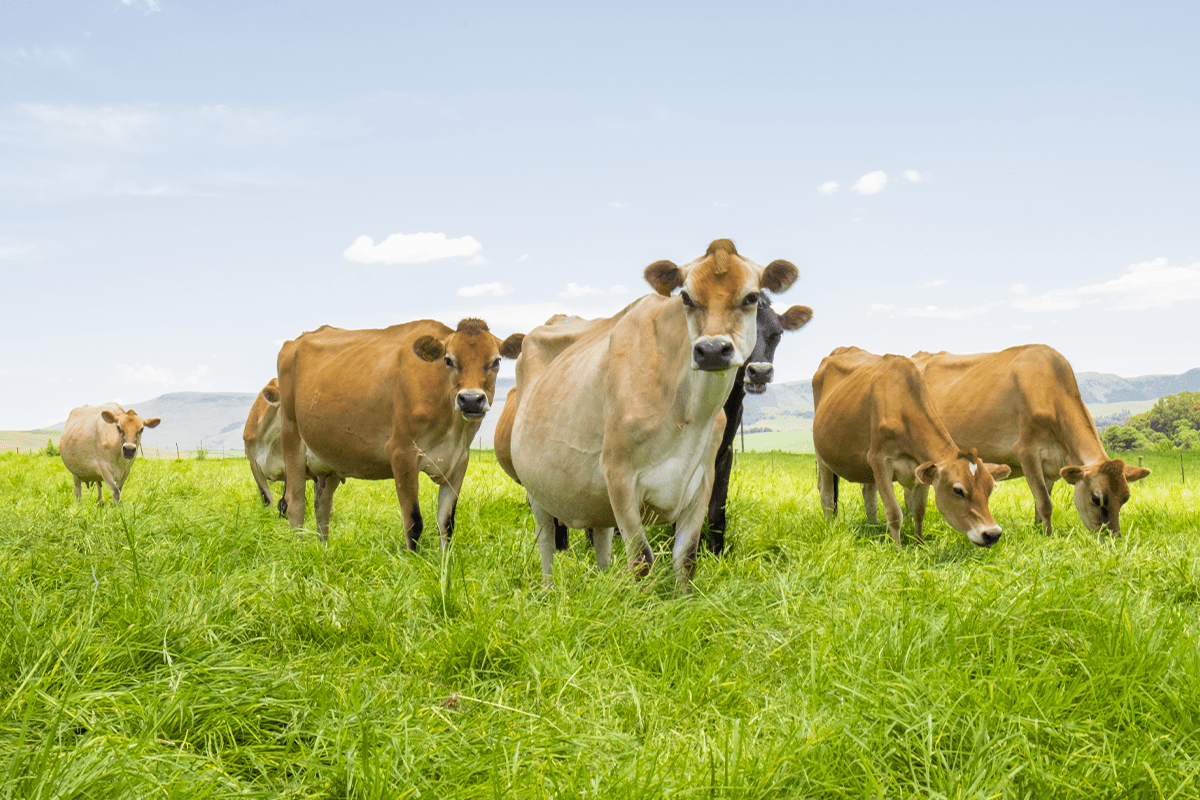
Herd of Jersey cows grazing on a farm.
What is agriculture?
Agriculture involves the cultivation of crops and the rearing of animals for food, fuel, and other products. It is essential to human society, providing sustenance, raw materials, and employment opportunities. However, traditional agricultural practices have led to environmental degradation, including soil erosion, water pollution, and deforestation. Therefore, sustainable agriculture has become increasingly important in recent years, where farming practices are implemented that promote environmental, economic, and social sustainability.
Why is sustainable agriculture important?
Sustainable agriculture is vital for the planet's survival, as it promotes the conservation of natural resources and reduces the negative impact of agriculture on the environment. Sustainable farming practices include crop rotation, reducing the use of synthetic fertilisers and pesticides, and promoting biodiversity. These practices can improve soil health, increase yields, and reduce carbon emissions by capturing large amounts of carbon in the soil.
Read more: What is sustainable land management?
Furthermore, sustainable agriculture can also improve farmers' livelihoods by providing long-term economic benefits and ensuring food security for future generations. Therefore, the importance of sustainable agriculture cannot be overstated, as it provides a path for agriculture to be a solution rather than a problem for the planet.
Learn more about what Green Earth can do for your land
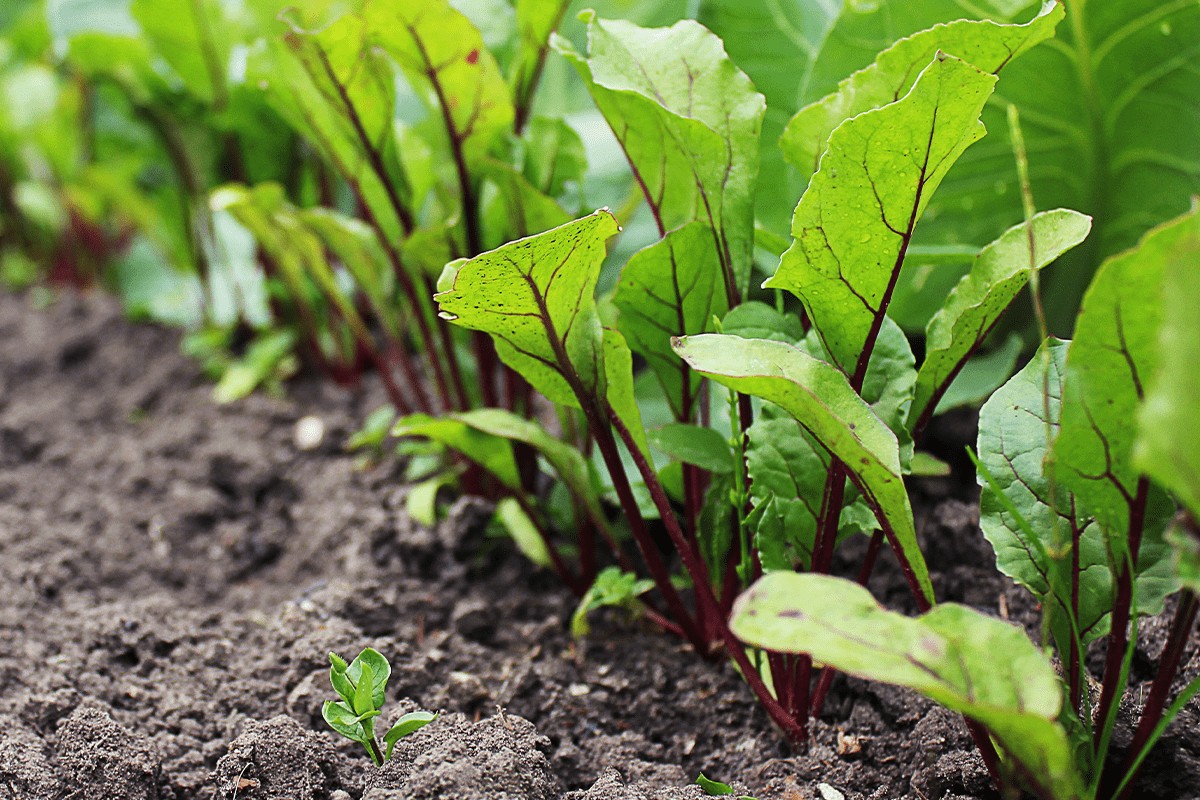
Growing beetroots, organic farm.
The many benefits of agriculture
Economic benefits
Agriculture provides significant economic benefits, both at the local and global levels. It is a major contributor to the world economy, providing employment opportunities, raw materials, and food. Agriculture contributes to the development of rural areas and reduces poverty by providing income to farmers and their families. The agricultural sector also generates revenue for countries through exports of agricultural products. Furthermore, sustainable agricultural practices also have economic benefits, such as reducing input costs and increasing yields, leading to higher profits for farmers.
Social benefits
Agriculture also provides significant social benefits, particularly in rural areas. It provides employment opportunities for people, helping to reduce poverty and improve the standard of living. Agriculture is a source of food and nutrition, which is essential for human health and wellbeing. Agriculture can also provide cultural benefits, such as preserving traditional farming practices and promoting community engagement. Sustainable agricultural practices can also have social benefits, such as providing environmental education, promoting gender equality, and empowering women farmers.
Environmental benefits
Agriculture can have significant environmental benefits when practised sustainably. Sustainable agricultural practices can conserve natural resources such as water and soil and promote biodiversity. For example, crop rotation improves soil health, reducing the need for synthetic fertilisers, which pollute waterways. Using agroforestry can also reduce deforestation, improve soil quality, and sequester carbon. Furthermore, by using renewable-energy sources and reducing synthetic fertilisers, sustainable agriculture reduces greenhouse gas emissions. Overall, sustainable agricultural practices mitigate the negative impact of agriculture on the environment and promote a healthier planet.
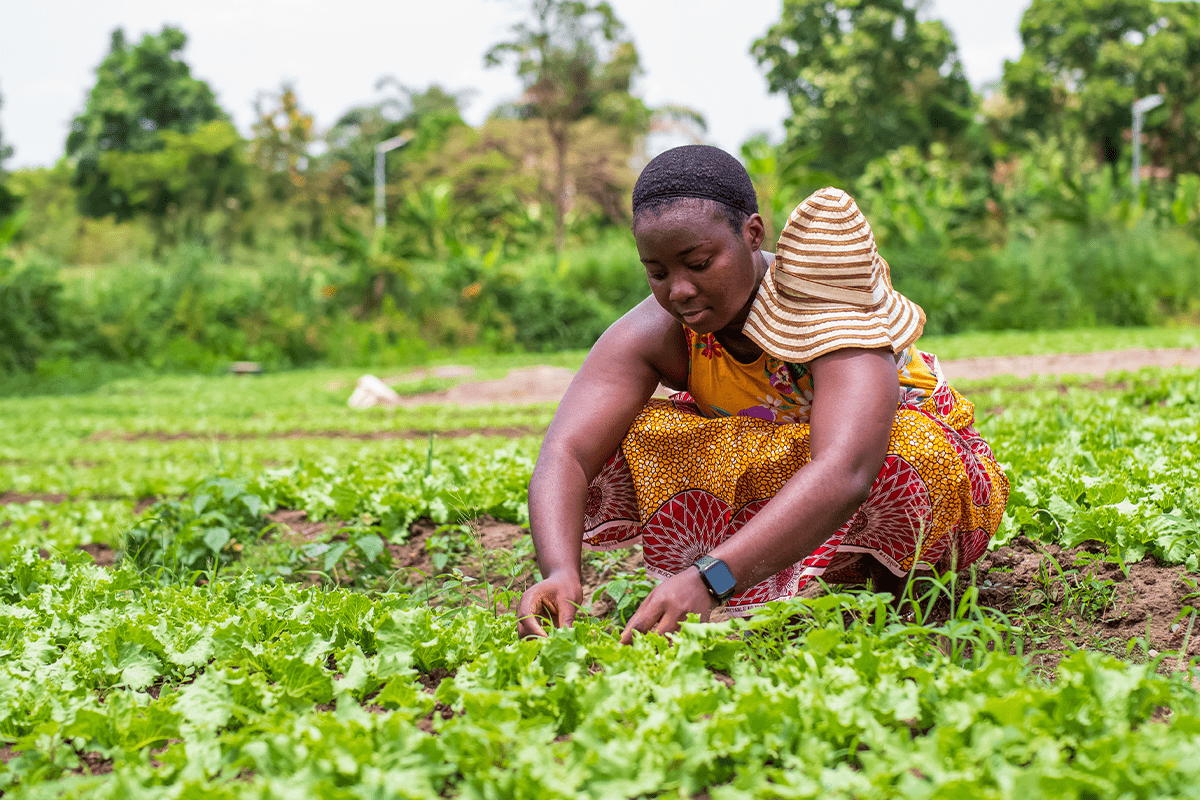
Woman working on cultivating vegetables in a field.
Read more: Irish companies driving positive environmental change
Another environmental benefit is the ability to capture carbon in the soil. Carbon sequestration in soil removes carbon dioxide from the atmosphere and stores it in the ground. Sustainable agriculture achieves this by implementing practices that build soil organic matter, such as reducing tillage, planting cover crops, and integrating livestock grazing. These practices enhance the health and fertility of the soil, promoting the growth of diverse plant species, which in turn helps to increase the amount of carbon stored in the soil. By promoting sustainable agricultural practices, we can ensure a more resilient and productive agricultural system.
Read more about integrating sustainable practices into agriculture
Integrate trees into your business
We can help your company become more sustainable by integrating trees into your business.
Challenges in agriculture
Environmental instability
Environmental instability and extreme weather events pose significant challenges to agriculture. Changes in temperature and rainfall patterns and extreme weather events, such as floods and droughts, can affect crop production and livestock health. Rising temperatures can also increase the incidence of pests and diseases, which in turn damage crops and reduce yields. Furthermore, long-term changes in the climate can lead to the loss of fertile land and cause the displacement of communities.
Soil degradation and erosion
Soil degradation and erosion pose crucial challenges to agriculture. Overuse of land and fertilisers and intensive farming practices lead to soil degradation, reducing soil fertility and crop yields. Soil erosion could also result in the loss of valuable topsoil, which is essential for plant growth. Similarly, soil degradation and erosion can contribute to water pollution and carbon emissions.
Water scarcity and water overuse
Water scarcity and water overuse are significant agricultural challenges. The agricultural sector is a major water user, accounting for approximately 70% of global freshwater withdrawals. Water scarcity and overuse could, in time, lead to decreased crop yields and reduced agricultural productivity. In addition, water scarcity leads to conflicts between different sectors and communities, particularly in regions with limited water resources.
Read more: 10 Agricultural techniques for water conservation
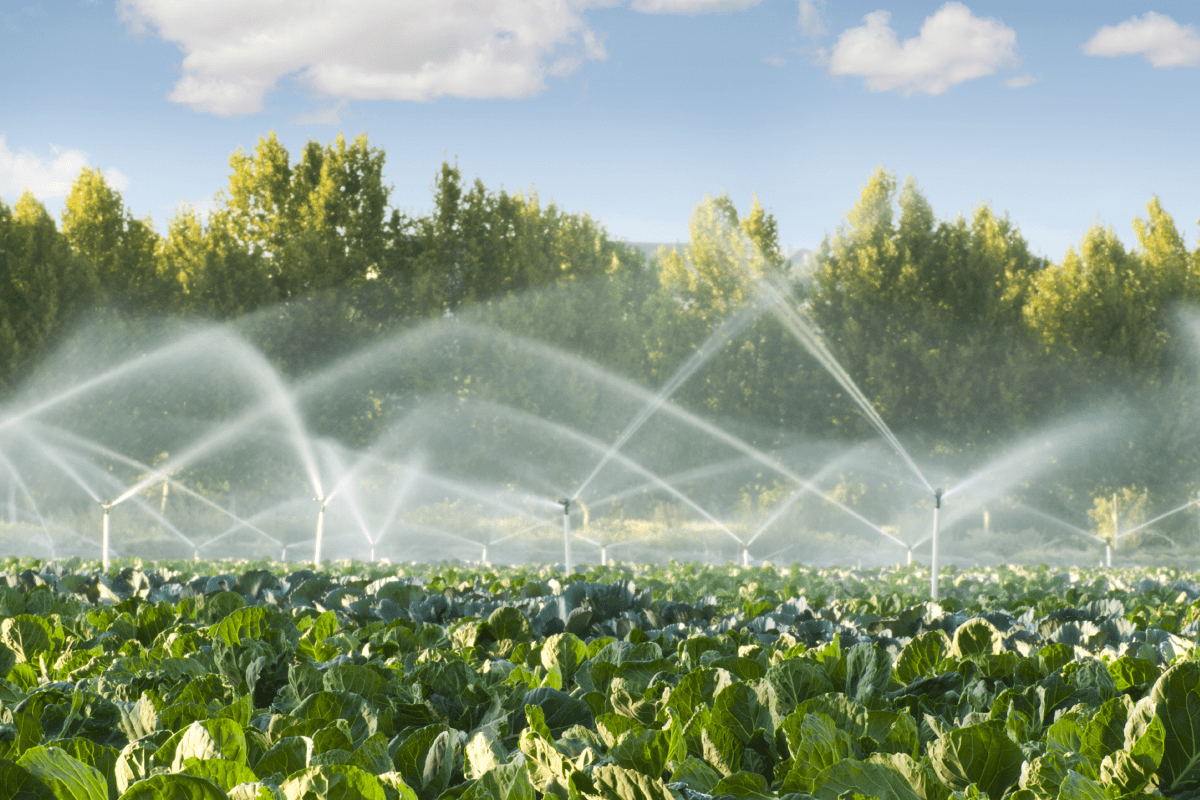
Irrigation system watering a green vegetable field.
Biodiversity loss
Biodiversity loss is a major challenge in agriculture. Agricultural practices, particularly monoculture and intensive farming practices, can contribute to biodiversity loss. This leads to reduced soil fertility, increased use of synthetic fertilisers and pesticides, and a decrease in the resilience of agricultural systems. Furthermore, biodiversity loss significantly impacts the broader ecosystem, causing, for instance, a decline in pollinator populations, which are essential for crop production. Overall, biodiversity loss poses significant challenges to the sustainability of agriculture and the planet.
At Green Earth, we recognise the importance of maintaining biodiversity for the benefit of all. That is why our projects are designed to safeguard biodiversity and restore vital habitats.
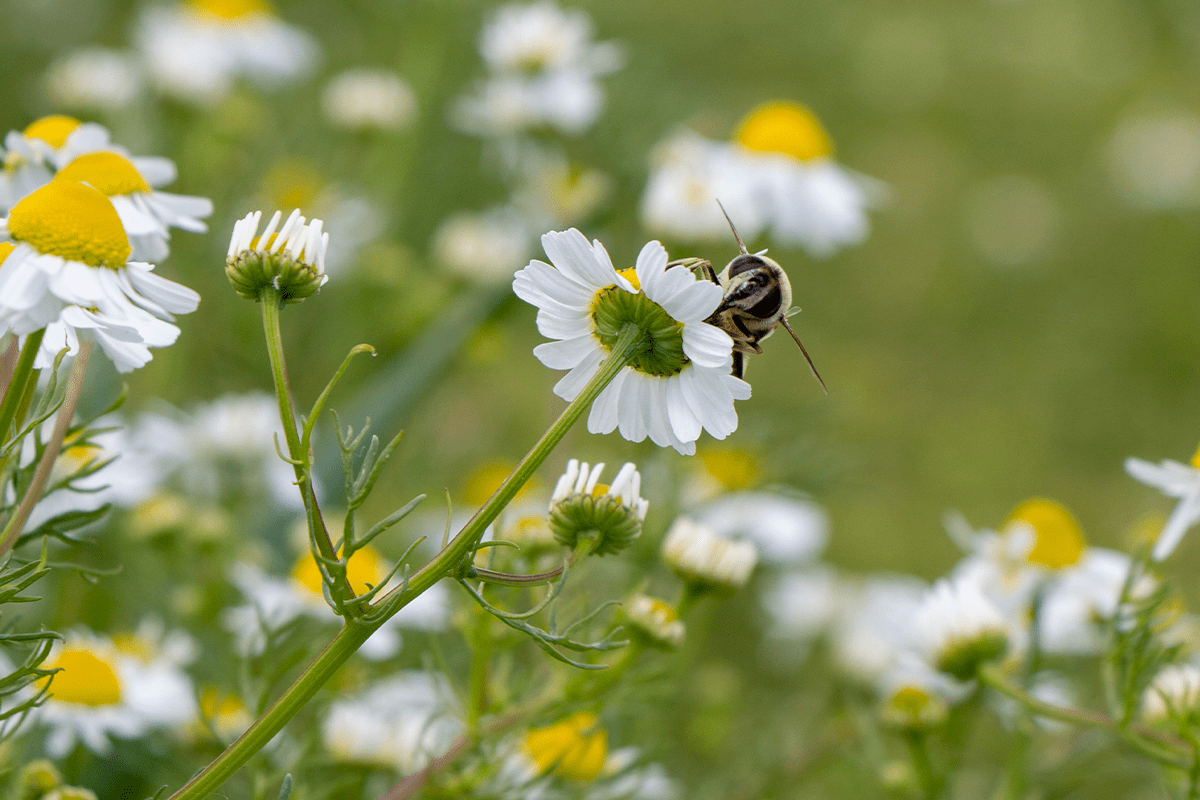
Bee on a chamomile field flower.
Read more: Sweet solutions: the role of bees and Impact Investments in environmental restoration
Sustainable agricultural practices
Organic farming
Organic farming is a sustainable agricultural practice that involves using natural inputs and biological processes to produce crops and livestock. Organic farming prohibits the use of synthetic fertilisers, pesticides, genetically modified organisms (GMOs), and irradiation. Organic farming aims to promote soil health and biodiversity. Organic farming also places a strong emphasis on animal welfare and avoids using antibiotics and hormones. Organic farming has gained popularity in recent years due to increasing concerns about the negative impacts of conventional agricultural practices on the environment and human health.
Permaculture
Permaculture is a sustainable agricultural practice that aims to create permanent, self-sustaining agricultural systems that mimic natural ecosystems. Permaculture involves designing agricultural systems that work with nature rather than against it, using principles such as diversity, interdependence, and regeneration. Permaculture systems typically involve a mix of crops, livestock, and other elements such as ponds, composting, and energy production. The goal of permaculture is to create agricultural systems that are resilient, productive, and sustainable in the long term.
Regenerative agriculture
Regenerative agriculture is a holistic approach to farming that seeks to improve the health and fertility of the soil, increase biodiversity, and promote sustainable and resilient ecosystems. It involves working with natural systems and processes to build soil health, sequester carbon, and enhance the productivity and profitability of farms.
Regenerative agriculture emphasises practices that restore and enhance soil health, such as minimising tillage, using cover crops, crop rotations, and composting. It also includes grazing management that mimics natural grazing patterns and allows animals to move and graze freely in a way that benefits both the land and the animals.
Regenerative agriculture recognises the importance of biodiversity and seeks to promote it by creating diverse habitats for beneficial insects, birds, and other wildlife. It also emphasises the use of natural pest management techniques and the avoidance of synthetic pesticides and fertilisers. At Green Earth, we incorporate regenerative agricultural techniques within our projects to ensure the highest benefit for both communities and ecosystems.
Learn more about regenerative agriculture
Conservation agriculture
Conservation agriculture is a sustainable agricultural practice that aims to protect and improve soil health while maintaining or increasing crop yields. Conservation agriculture involves minimising soil disturbance, maintaining soil cover, and rotating crops to improve soil fertility and reduce erosion. Conservation agriculture also emphasises the use of natural inputs and reduces the use of synthetic fertilisers and pesticides. The goal of conservation agriculture is to create agricultural systems that are sustainable, productive, and environmentally friendly.
Read more: Dry farming: growing crops without irrigation
Agroforestry
Agroforestry is a sustainable agricultural practice that integrates trees and shrubs into agricultural systems. Agroforestry improves soil health, increases biodiversity, and provides benefits such as shade, windbreaks, and food sources for livestock. Agroforestry also helps to mitigate the negative impacts of agriculture on the environment, such as reducing carbon emissions and soil erosion. Agroforestry systems can include alley cropping, silvopasture, and forest gardening, among others. The goal of agroforestry is to create agricultural systems that are sustainable, productive, and environmentally friendly.
Read more: Farming's new frontier: agroecology in action
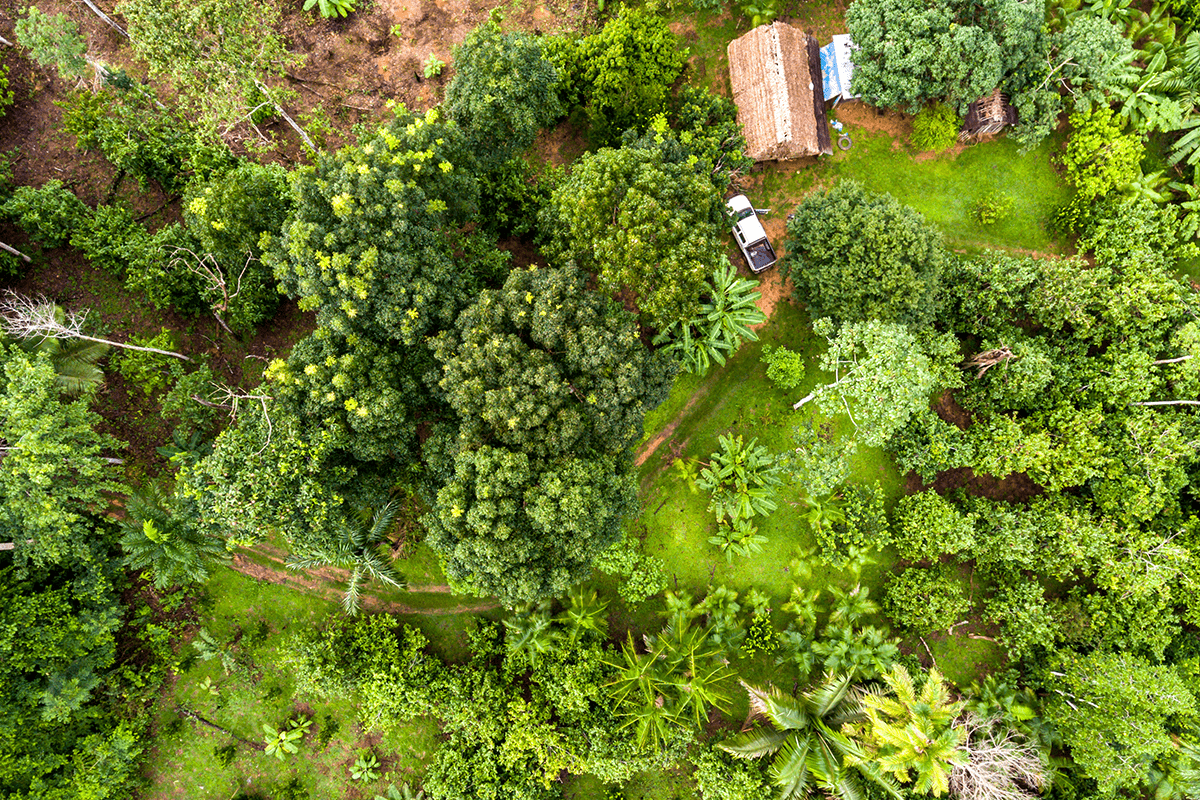
Amazon Agroforestry Parcel/Land with a variety of tropical crops.
Technology in agriculture
Precision agriculture
Precision agriculture is a technology-based approach to farming that uses data and analytics to optimise crop yields and reduce inputs such as fertilisers, pesticides, and water. Precision agriculture involves using tools such as drones, sensors, and GPS to monitor crops and soil conditions in real time. This information is then used to create customised management plans that optimise inputs and maximise crop yields. Precision agriculture reduces costs for farmers, improves productivity, and reduces their environmental impact.
Vertical farming
Vertical farming is a technology-based approach to agriculture that involves the cultivation of crops in vertically stacked layers using artificial lighting and controlled environments. Vertical farming can be done indoors or outdoors and produce crops year-round, regardless of climate or weather conditions. Vertical farming also reduces water usage, pesticides, and fertilisers and increases crop yields per unit of land. However, vertical farming requires significant energy inputs and can be expensive to set up and maintain.
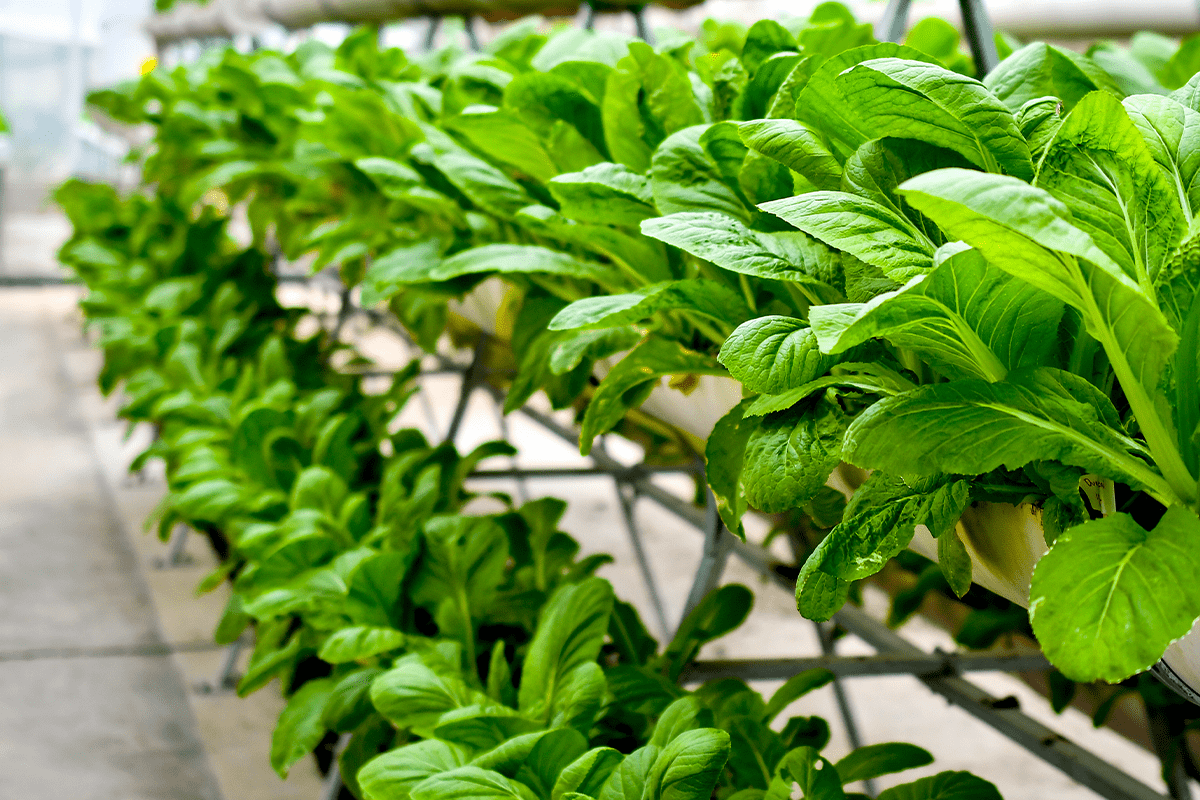
Organic vertical farming.
Are you aware of your environmental impact? Calculate your carbon footprint.
Hydroponics and aquaponics
Hydroponics and aquaponics are technology-based approaches to agriculture that involve cultivating crops without soil, using nutrient-rich water instead. Hydroponic systems are used to grow crops in a controlled environment and produce crops year-round, regardless of weather conditions. Aquaponic systems combine hydroponics with aquaculture, using fish to provide nutrients for the plants. The plants, in turn, filter the water, which is then returned to the fish tanks. Hydroponics and aquaponics can reduce water usage, pesticides, and fertilisers and increase crop yields per unit of land. However, these systems require significant energy inputs and can be expensive to set up and maintain.
Let us inform you
We will keep you updated on all the latest news.
Sustainable livestock farming
The importance of sustainable livestock farming
Sustainable livestock farming is important for several reasons. First, it helps reduce the environmental impact of agriculture by minimising the use of natural resources and reducing carbon emissions. Sustainable livestock farming also improves animal welfare and provides economic benefits for farmers and their communities. Additionally, sustainable livestock farming can help ensure food security by providing a reliable source of protein and other nutrients.
Grass-fed vs grain-fed
Grass-fed livestock farming involves the practice of raising animals on pasture and feeding them a diet primarily of grasses and other forage. Grain-fed livestock farming involves feeding animals a diet based on grains such as corn or soy. Grass-fed livestock farming is considered more sustainable and environmentally friendly than grain-fed farming because it reduces the need for fossil fuels and the risk of soil erosion. Grass-fed livestock also tend to have higher levels of omega-3 fatty acids and other beneficial nutrients compared to grain-fed livestock. However, grass-fed livestock farming can be more expensive and may not be as efficient in terms of meat production.
What is carbon farming? Read all about it here.
Animal welfare
Animal welfare is an important aspect of sustainable livestock farming. Sustainable livestock farming involves providing animals with humane living conditions, access to pasture or outdoor areas, and a diet that meets their nutritional needs. Additionally, sustainable livestock farming avoids using antibiotics and growth hormones, which can negatively impact animal health and welfare. Improving animal welfare not only benefits the animals but also improves the quality of the meat and other animal products produced. Consumers are increasingly demanding products from animals that have been raised in humane and sustainable conditions.
Our projects
We develop large-scale, impactful projects.
Challenges of livestock farming
Land degradation and deforestation
Land degradation and deforestation are significant challenges in livestock farming. As demand for meat and dairy products increases, more land is needed for grazing and feed production. This can lead to deforestation and land degradation, which can negatively impact biodiversity, soil quality, and water resources. Livestock farming can also contribute to soil erosion and desertification, further degrading the land quality and reducing its productivity.
Discover what we can do for your land
Water use and pollution
Livestock farming is water-intensive, with animals requiring significant amounts of water for drinking and other uses. Additionally, livestock farming can contribute to water pollution through runoff from manure and other waste products. This leads to contamination of surface water and groundwater, which can negatively impact human health and the environment. Livestock farming can also contribute to the eutrophication of water bodies, resulting in harmful algal blooms and other negative impacts on aquatic ecosystems.
Antibiotic resistance
Antibiotic resistance is a growing concern in livestock farming. Antibiotics are commonly used in livestock farming to prevent and treat diseases, but their overuse can lead to the development of antibiotic-resistant bacteria. This has negative impacts on human health, as antibiotic-resistant bacteria can spread from livestock to humans through food, water, and other pathways. Antibiotic-resistant infections can be more challenging to treat and result in higher morbidity and mortality rates. Additionally, the overuse of antibiotics in livestock farming can lead to the development of superbugs, which can be resistant to multiple antibiotics and pose a significant public health threat.
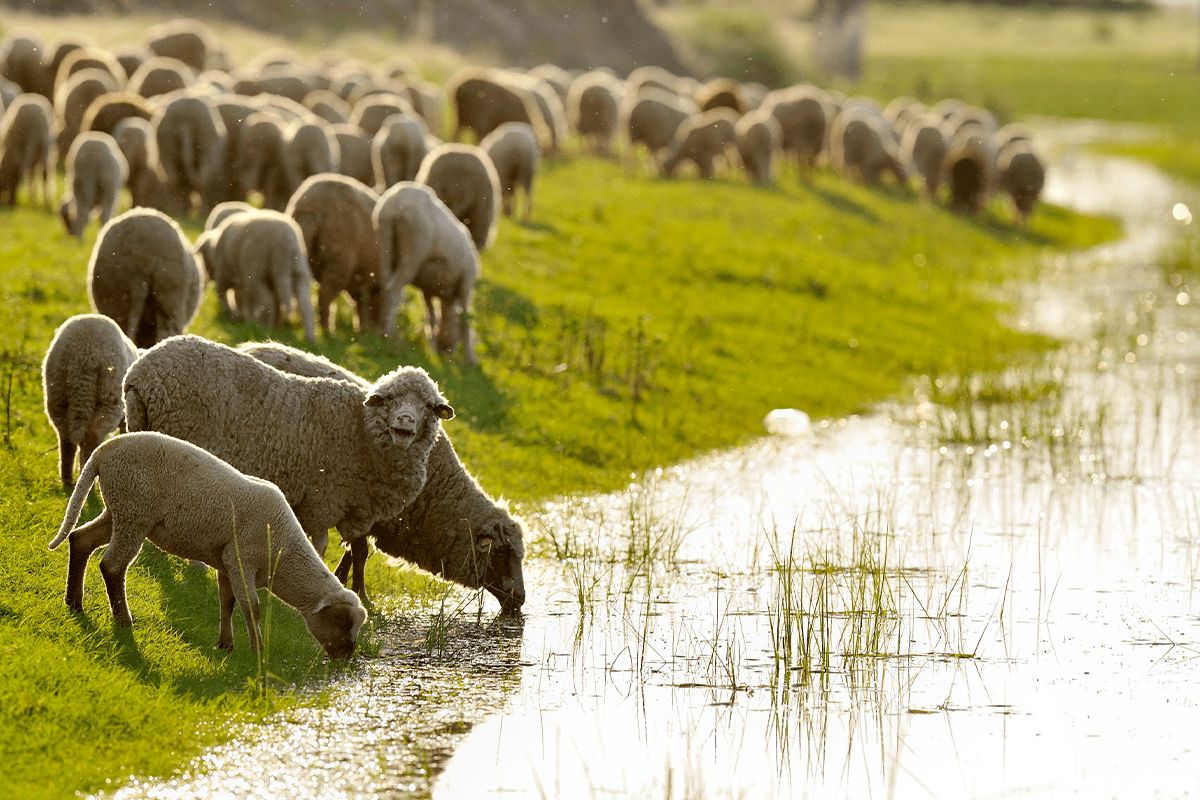
A herd of sheep in the field drinking water from a stream.
Food waste and food loss
One way of making agricultural practices and the amount of agricultural products produced more sustainable is better management of end products. That means that along with making agriculture a more sustainable practice, in parallel, we need to pay attention to the topic of food waste too.
What are food waste and food loss?
Food waste and food loss are two terms used to describe the amount of food discarded or lost at various stages of the food supply chain. Food waste refers to food that is discarded by consumers, retailers, and restaurants, while food loss refers to food that is lost during production, transportation, and storage before it even reaches consumers. Both food waste and food loss have significant economic, social, and environmental impacts.
The causes of food waste and food loss
There are many causes of food waste and food loss. In some countries, food loss is often due to inadequate infrastructure for transportation and storage, while in other countries, food waste is often due to consumer behaviour and preferences. Retailers and restaurants also contribute to food waste by discarding food that is still safe to eat but that passed its sell-by date. Additionally, overly strict cosmetic standards for fruits and vegetables lead to significant amounts of food being discarded.
Solutions to reduce food waste and food loss
There are many solutions to reduce food waste and food loss. These include improving infrastructure and technology for food storage and transportation, implementing better supply chain management practices, and reducing consumer food waste through education and awareness campaigns. Food recovery programmes can also help divert food that would otherwise be wasted to food banks and other organisations that serve those in need.
Improved food labelling practices, like using ‘best by’ instead of ‘sell by’ dates, can also reduce consumer confusion and minimise the amount of food needlessly discarded. Finally, businesses and governments can work together to create policies that incentivise the reduction of food waste and food loss throughout the supply chain.
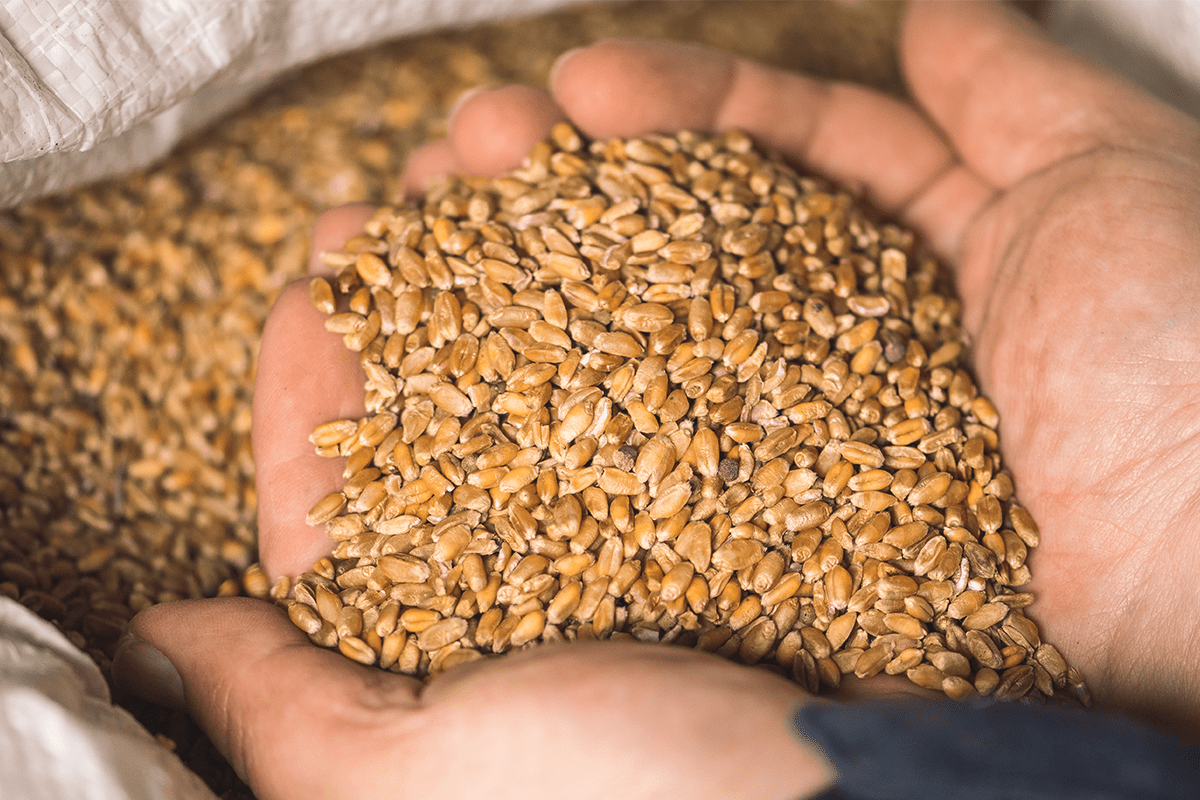
Hands holding wheat grains.
Green Earth supports sustainable agriculture for a better future
It is clear that sustainable agricultural practices are crucial for creating a better planet. We must take action to reduce our environmental impact and create more resilient and sustainable food systems. This can be achieved through a combination of education, innovation, and policy changes. Consumers can make a difference by supporting local, sustainable agriculture and reducing food waste, while businesses can implement sustainable practices throughout their supply chains. Governments also play a critical role in incentivising sustainable agricultural practices and investing in research and development to support innovation in the agricultural sector.
Green Earth believes in the power of innovation and that only by following principles of sustainability can we create a better and brighter future for all. Our projects incorporate a variety of sustainable agricultural techniques, such as agroforestry and regenerative agriculture. We also maintain a heightened focus on safeguarding biodiversity and preventing habitat loss through the species chosen for planting. Moreover, helping local communities develop and upkeep sustainable agricultural practices is a key component that contributes to the long-term success of our endeavours.
Read more about our projects’ impacts on local communities
Agriculture has a vital role to play in creating a better planet. Sustainable agricultural practices help address some of the most pressing environmental and social challenges facing our planet, from environmental instability to food insecurity.
By embracing innovative technologies and practices, we can create more efficient and resilient food systems that benefit both people and the planet. It is up to all of us—from consumers and businesses to policymakers and researchers—to take action and work together towards a more sustainable and equitable future.
Join us in creating a better future for all








